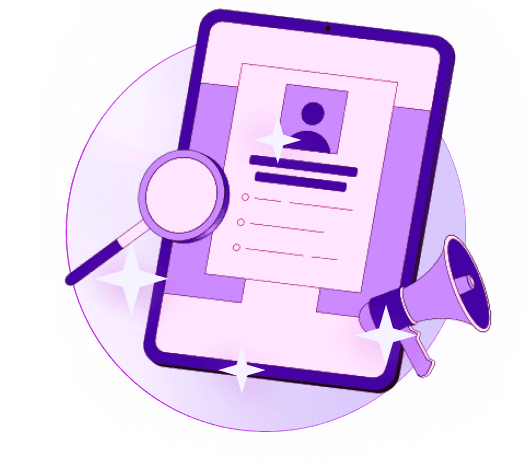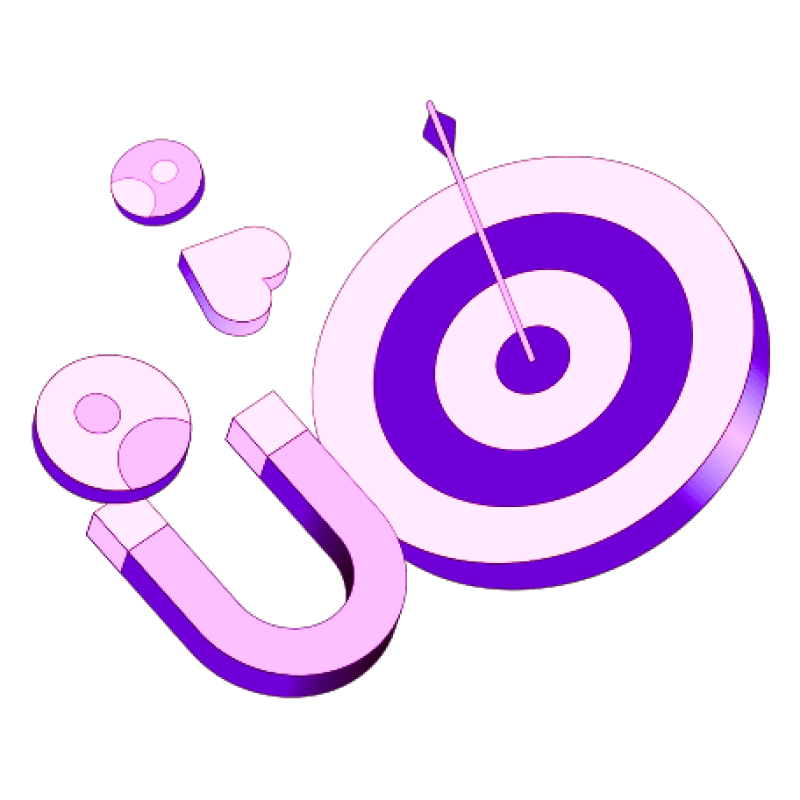Blogs
Articles

Ultimate Guide to Outbound Sales Automation Strategies
Staying ahead of the curve is essential for driving growth and achieving success. This comprehensive guide is your key to unlocking the potential of sales automation strategies. Whether you're a seasoned professional seeking process optimization or a newcomer eager to grasp the essentials, this guide caters to all levels of expertise.
From uncovering the advantages of automation to implementing cutting-edge strategies, we leave no stone unturned. Get ready to embark on a journey that will reshape your sales approach and elevate your performance. Let's delve into the realm of innovative techniques and tools that will revolutionize your sales game and propel your business towards excellence!.
Effective Strategies for Sales Automation
Sales automation has become a crucial tool for businesses to streamline their sales processes, increase efficiency, and drive revenue growth. By leveraging the right strategies for sales automation, businesses can not only save time and resources but also improve customer engagement and boost sales. In this blog section, we will explore some effective strategies for sales automation and how they can help businesses achieve their sales objectives.
Customer Segmentation and Targeting
One of the key strategies for successful sales automation is customer segmentation and targeting. By dividing customers into specific groups based on their demographics, behavior, or preferences, businesses can create personalized marketing messages and offers that are more likely to resonate with each group. Through the use of automation tools, businesses can efficiently segment their customer base and target them with tailored communications, resulting in higher conversion rates and customer satisfaction.
Personalization Techniques in Outreach
Another important aspect of sales automation is the use of personalization techniques in outreach efforts. Personalized communication, such as personalized emails or messages, can significantly impact a prospect's decision-making process and improve the overall customer experience. Automation tools can help businesses personalize their outreach at scale by incorporating dynamic content, customer data, and behavioral triggers to deliver relevant and timely messages to prospects and customers.
Automating Follow-up Processes
Consistent follow-up is essential in sales to nurture leads, build relationships, and close deals. However, manually following up with every lead can be time-consuming and prone to human error. Automation tools enable businesses to automate follow-up processes by scheduling follow-up emails, reminders, or tasks based on predefined triggers or actions taken by prospects. By automating follow-up processes, businesses can ensure that no leads fall through the cracks and that each prospect receives the attention they need to move further down the sales funnel.
Integrating CRM with Automation Tools
Integrating Customer Relationship Management (CRM) systems with sales automation tools is crucial for maximizing the effectiveness of sales automation strategies. By syncing customer data, sales activities, and communication history between CRM and automation tools, businesses can gain a comprehensive view of their customers and prospects, streamline their sales processes, and make data-driven decisions.
Implementing effective strategies for sales automation can revolutionize a business's sales processes, drive efficiency, and ultimately lead to increased revenue and customer satisfaction. By leveraging customer segmentation, personalization techniques, automated follow-up processes, and CRM integration, businesses can optimize their sales efforts, improve productivity, and stay ahead in today's competitive market.
Implementing Sales Automation Effectively
Sales automation has become a key strategy for businesses to streamline their sales processes, improve efficiency, and drive revenue growth. To effectively implement sales automation, businesses need to focus on the following key areas:.
Creating Effective Email Templates
One of the fundamental aspects of sales automation is email marketing. Businesses should invest time in creating well-designed and engaging email templates that resonate with their target audience. Personalization And. segmentation Are crucial to ensure the success of email campaigns. Implementing A/B testing to optimize email content and subject lines can further enhance email performance.
Establishing Automated Workflows
Automated workflows help in automating repetitive tasks, such as lead nurturing, follow-ups, and customer communication. By setting up clear and efficient workflows, businesses can ensure timely and consistent engagement with prospects and customers. Integration with CRM systems and marketing automation platforms can streamline workflows and improve overall efficiency.
Performance Monitoring and Enhancement
Monitoring the performance of sales automation processes is essential to identify areas of improvement. Analyzing key metrics, such as open rates, click-through rates, and conversion rates, can provide valuable insights for enhancing automation strategies and optimizing sales efforts. Utilizing advanced analytics tools and dashboards can facilitate real-time tracking of performance metrics and enable data-driven decision-making.
Training Sales Teams on Automation
Lastly, training sales teams on how to effectively utilize sales automation tools and processes is critical for successful implementation. Providing comprehensive training and resources can empower sales representatives to leverage automation effectively and drive better results. Continuous education on new features and best practices in sales automation ensures that the sales team remains competitive and adaptable in a dynamic market environment.
By focusing on these key areas and embracing a culture of continuous improvement, businesses can implement sales automation effectively and unlock its full potential to drive sales growth, enhance overall productivity, foster long-term customer relationships, and stay ahead of the competition in today's rapidly evolving market landscape.
Measuring Success and Key Performance Indicators
Essential Metrics for Tracking Progress
To truly measure success, it is essential to identify and track the right metrics. These metrics serve as benchmarks for progress and provide valuable insights into the effectiveness of strategies implemented. Key metrics could include sales growth, customer retention rates, website traffic, conversion rates, and more. By analyzing these metrics regularly, businesses can make informed decisions and adapt their tactics to drive success.
Data Analysis for Informed Decisions
Data analysis plays a crucial role in understanding performance and making informed decisions. By leveraging tools and technologies to analyze data, businesses can uncover trends, patterns, and correlations that provide valuable insights. This data-driven approach enables organizations to identify areas of improvement, capitalize on strengths, and make strategic decisions that align with their goals.
Continuous Improvement Strategies
Continuous improvement is a fundamental aspect of achieving long-term success. By setting clear goals, regularly monitoring key performance indicators, and implementing feedback loops, organizations can foster a culture of continuous improvement. This iterative process allows businesses to adapt to changing market conditions, customer preferences, and industry trends, ensuring that they remain competitive and resilient in today's dynamic business landscape.
Importance of Key Performance Indicators
Key Performance Indicators (KPIs) are essential metrics that help businesses evaluate their progress towards specific goals. These indicators vary depending on the industry and the objectives of the organization but often include financial metrics, customer satisfaction scores, employee engagement levels, and operational efficiency measures. By defining and tracking KPIs, businesses can gain a comprehensive view of their performance and identify areas that require attention or improvement.
Utilizing Technology for Data Analysis
Businesses have access to a wide range of tools and technologies that facilitate data analysis. From advanced analytics software to machine learning algorithms, organizations can leverage technology to gain deeper insights from their data. By investing in the right tools and training employees on data analysis best practices, companies can enhance their decision-making processes and stay ahead of the competition.
Implementing Agile Methodologies for Continuous Improvement
Agile methodologies, commonly used in software development, are increasingly being adopted in other business functions to drive continuous improvement. By embracing agile principles such as iterative development, frequent feedback loops, and cross-functional collaboration, businesses can respond quickly to changes and continuously enhance their products, services, and processes. This agile approach fosters innovation, adaptability, and a customer-centric mindset, which are critical for sustained success in today's fast-paced business environment.
Conclusion
Measuring success and tracking key performance indicators are vital components of effective business management. By focusing on the right metrics, leveraging data analysis tools, and embracing continuous improvement strategies, organizations can optimize their performance, drive growth, and remain competitive in an ever-evolving marketplace.

Create Your Free Persana Account Today
Join 5000+ GTM leaders who are using Persana for their outbound needs.
How Persana increases your sales results
One of the most effective ways to ensure sales cycle consistency is by using AI-driven automation. A solution like Persana, and its AI SDR - Nia, helps you streamline significant parts of your sales process, including prospecting, outreach personalization, and follow-up.



